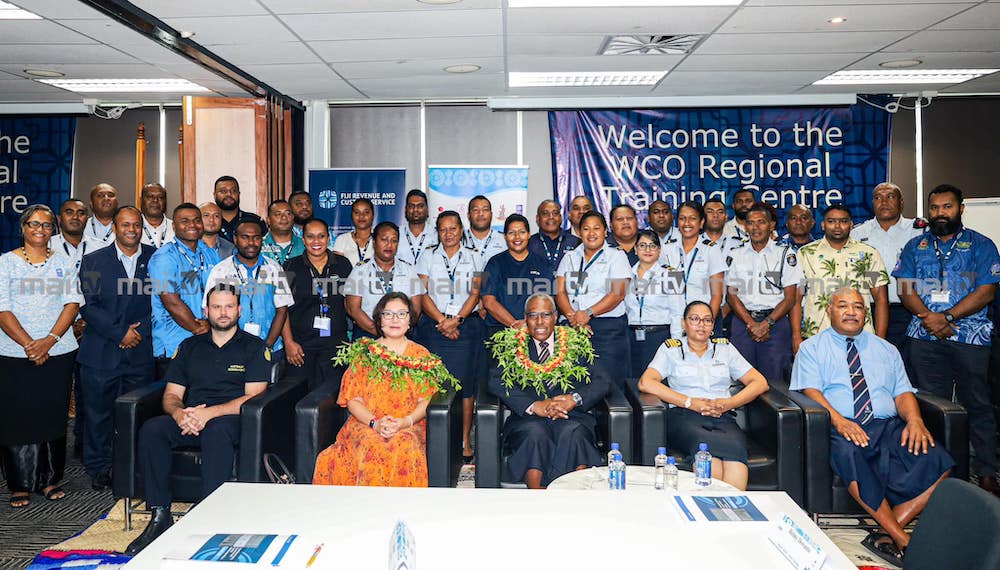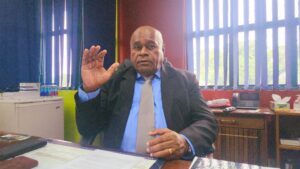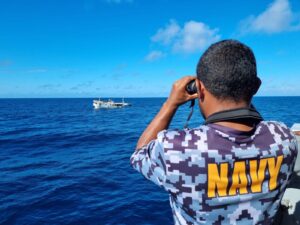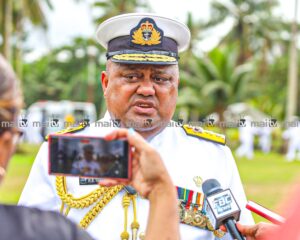Fiji’s Director Customs and Borders Shelini Kumar set the tone for Fiji’s two-week seaport training program, underscoring the need for border personnel to “think like criminals” in the face of evolving challenges.
Addressing 25 participants from border agencies across Fiji, Palau, and Vanuatu, who are attending a two-week training in Suva, Kumar highlighted the importance of adopting a proactive mindset, stating, “If we put it in a process and procedure to combat issues, the criminals have a mind to be one step ahead of us.”
“So sometimes if you have to to get our minds to think like a criminal – where they would be doing activities on or how are they thinking around sabotaging how customs, navy, police and other border agencies thinks around protection of our national borders. At the end of the program, you should have people out there who should have a mind which thinks differently. You need to make a difference.
“It’s not just about coming to the classroom and doing the learnings; you need to put those into action. While we are there to do trade facilitation, it is also important to have a good coordination, and that is with all agencies, at the border and behind the scenes for which we enforce the law at the frontline.”
The timing of the training is significant in light of recent events including the seizure of over 4.8 tonnes of methamphetamine in Fiji.
Led by the Fiji Revenue and Customs Service (FRCS) and supported by Australian Border Force and Indonesia’s Directorate General of Customs and Excise, the program aims to address gaps, encourage coordination, and strengthen the management of seaports in the Pacific.
The participants, representing various border agencies, will undergo comprehensive training covering vessel searches, safety at sea, boarding operations, access systems, and survival techniques in water.
Attorney-General and Minister for Justice Siromi Turaga opened the training and said it would contribute to the creation of an ecosystem for the monitoring, enforcement, and prosecution of border control measures in Fiji across the Pacific.

“Seaports are important gateways for international trade and commerce, with seaport border controllers our frontline defenders. From inspecting cargo and vessels to monitoring traffic, their duties are demanding, with this next fortnight an opportunity for training and skills enhancement. However, it must be noted that it only becomes useful if you put it to use,” he said.
United Nations Development Programme (UNDP) Pacific Office in Fiji Resident Representative, Munkhtuya Altangerel, spoke at the opening of the training and said:
“This training will strengthen traditional partnerships between Australia, Japan, Indonesia and Pacific Island Countries to provide for a safer Blue Pacific Continent. It will not only support in strengthening borders, it will also contribute to the UN’s Sustainable Development Goals, as through fostering regional cooperation and enhancing our capacity to combat illicit activity, we create a safer and more prosperous environment for all, ensuring that no one is left behind.”
UNDP’s Integrated Border Management Project is supported by the Government of Japan, with implementation of the project jointly undertaken by UNDP, the International Organization for Migration, and the United Nations Conference on Trade and Development.
The training – which includes practical, on-water simulation events, will run until February 23.









